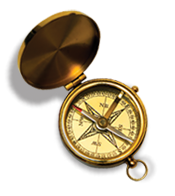For bookings or enquiries call us on Please contact our Australian Booking Agent ![]() +61 401 177 175 or email us at [email protected]
+61 401 177 175 or email us at [email protected]
- Home
- Itinerary
- Countries
- Trip Information
Overlanding our way
Pre-departure
- Our Vehicle
- About
- FAQ
- Contact
For bookings or enquiries call us on Please contact our Australian Booking Agent ![]() +61 401 177 175 or email us at [email protected]
+61 401 177 175 or email us at [email protected]


The Republic of Malawi is a landlocked country in southeast Africa that was formerly known as Nyasaland. It is bordered by Zambia to the northwest, Tanzania to the northeast, and it borders Mozambique on the east, south and west. The country is separated from Tanzania and Mozambique by Lake Malawi. Its size is over 118,000 km? with an estimated population of more than 13,900,000. Its capital is Lilongwe, the biggest city is Blantyre. The name Malawi comes from the Maravi, an old name of the Nyanja people that inhabit the area.
Malawi was first settled during the 10th century and remained under native rule until 1891 when it was colonized by the British, who ruled the country until 1964. Upon gaining independence it became a single-party state under the presidency of Hastings Banda, who remained president until 1994, when he was ousted from power. Bingu Mutharika, elected in 2004, is the current president. Malawi has a democratic, multi-party government. Malawi has a small military force that includes an army, a navy and an air wing. Malawi’s foreign policy is pro-Western and includes positive diplomatic relations with most countries and participation in several international organizations. Malawi is among the world’s least developed and most densely populated countries. The economy is heavily based in agriculture, with a largely rural population. The Malawian government depends heavily on outside aid to meet development needs, although this need (and the aid offered) has decreased since 2000. The Malawian government faces challenges in growing the economy, improving education, health care and the environmental protection and becoming financially independent. Malawi has several programs developed since 2005 that focus on these issues, and the country’s outlook appears to be improving, with improvements in economic growth, education and healthcare seen in 2007 and 2008.
Malawi has a low life expectancy and high infant mortality. There is a high prevalence of HIV/AIDS, which is a drain on the labor force and government expenditures, and is expected to have a significant impact on gross domestic product (GDP) by 2010. There is a diverse population of native peoples, Asians and Europeans, with several languages spoken and an array of religious beliefs. Although there was tribal conflict in the past, by 2008 it had diminished considerably and the concept of a Malawian nationality had begun to form. Malawi has a culture combining native and colonial aspects, including sports, art, dance and music.

© Savannah Overland 2019. All rights reserved. Terms & Conditions.
Savannah Overland is a trading style of Savannah Overland Expeditions Ltd. Company Number 7175271 Incorporated in England and Wales. Registered Office: 1 High Street Mews, Wimbledon Village, London, SW19 7RG
Website design and build by